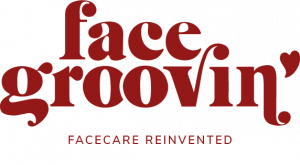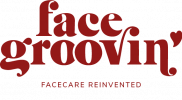“Wrinkles are the first sign of aging.” “Expensive cosmetics are better than cheaper ones.” “A high-SPF sunscreen protects you fully from the sun.” These are just a few of the myths that have popped up about skin aging — and what really helps (or doesn’t). Here, we’ll look at a few of the most popular, and perhaps most harmful myths … some of these are just as bad or worse than sleeping with your makeup on!
We’ve known for a long time now that we can’t believe just anything that beauty bloggers, magazines, or even our friends say. You’ve probably heard more than a few things about skin aging that have caused you to raise an eyebrow. Let’s debunk some of the most pervasive myths out there.
„Genes are the most important factor in aging”
The genes we inherit from our parents and grandparents are important, and they do play a large role in the way our skin ages. At the same time, there are other important factors, too. You can inherit great genes from your grandmother, who looked young her whole life long — and then go and squander that “advantage” by neglecting to care for your skin. The speed at which our skin ages is also greatly influenced by sun exposure and environmental pollutants, like smog. How we manage stress and our eating habits are also crucial.
„The sun is only harmful in the summertime”
This is one of the most dangerous myths — so it’s time to debunk it once and for all. Repeat it out loud with us: the sun is active year-round, so it affects our skin year-round! Sunscreens with UVA and UVB filters — and preferably those labeled “broad-spectrum” or “PA ++++”, meaning they protect against both types of radiation, and sometimes also blue light — are your first line of defense against the harmful effects of the sun. Remember, the sun doesn’t just speed up our skin’s aging process. It also has a carcinogenic effect. Sunscreen protects not only your beauty, but also your health. What could be more important?
„A high-SPF sunscreen protects you fully from the sun”
The next myth also has to do with the sun. The higher a sunscreen’s SPF factor, the better, of course — it means you can stay out in the sun longer without burning. Sunburns are caused by UVB rays, but let’s not forget about UVA. The latter type of radiation penetrates our skin much more deeply — and therefore, it has even more serious consequences for our skin and our health. When investing in a sunscreen, choose one that protects you against both UVA and UVB rays, and apply them at least 15 minutes before sun exposure. Better yet, reduce the amount of time you spend in the sun altogether. It’s best to stay out of the sun between 11:00 AM and 3:00 PM.
Remember to wash sunscreen off of your face as soon as you get home (provided you won’t be going out again). Use a cleanser that’s appropriate for the type of sunscreen (waterproof always requires a bit more work) and to whether or not you’re wearing makeup.
„Wrinkles are the first sign of aging”
Everyone ages differently, but the process starts for everyone after age 25. We can have an impact on this process — think self-care, a healthy lifestyle, salon treatments, sunscreen … and, of course, the right facial exercises and massages. Our skin is our largest organ, and at a certain age, its cellular metabolism simply slows down. After our 25th birthday, lipid production decreases, weakening our skin’s protective barrier and reducing the level moisture. After age 30, our skin slowly loses its elasticity, and it may start to succumb to gravity. It’s interesting, too, to observe our facial proportions. Visually, we can tell when someone is older — even if they’ve gone in for some aesthetic medicine and don’t show any wrinkles at all. The fat pads migrate, the distance between our noses and lips shifts, and our eyelids change shape. You can have the smoothest face in the world and still look “mature.” What we mean to say is that you shouldn’t wait to care for your skin until the first signs of aging kick in. The same logic applies to our bodies — there’s no sense in waiting to exercise until we have a problem.
„Expensive cosmetics work better than cheaper ones”
It’s not about how much a product costs, but what it’s made of. Cosmetics can easily be marked up just for the sake of branding, creating only the impression of a higher quality. Don’t overpay. Read the INCI (International Nomenclature of Cosmetic Ingredients) list! It can help you learn to distinguish the right ingredients from the totally unnecessary ones.
„All skin types age the same way”
Unfortunately, this just isn’t true. Those of you with dry skin can confirm this — hydration may be a constant issue. Wrinkles also show up more quickly on dry skin, because it lacks the higher level of hydro-lipid production that characterizes oily, combination, or normal skin.
„Evening skincare is more important than morning skincare”
Morning and night are equally important in skin care — daytime or nighttime products differ only in the type of nutrients they provide. In the morning, you need to protect your face from the the sun, wind, and smog you’ll encounter during the day. At night, it’s about removing makeup and nourishing your skin.
„Retinol isn’t for everyone — and it’s highly irritating”
Retinol, or Vitamin A, is one of the most effective anti-aging ingredients out there. When used properly, it can be part of a routine for all skin types — even if you’re acne-prone or have sensitive skin. The key to success is doing lots of research! You’ll want to learn how retinol works and how it will impact your individual complexion. To start, give the lowest-possible concentration a try, and follow it up with a high-SPF sunscreen (retinol makes everyone more sensitive to the sun). Remember: Every skin type reacts to retinol differently. Pay attention to your skin, and if you decide that retinol isn’t for you, stop using it. This said, it’s best to consult an experienced skincare practitioner before incorporating retinol into your routine.
Skin aging can’t be stopped — that’s a reality we all face. But you can slow it down by incorporating a few simple steps into your daily skincare regimen. Now you know myth from reality, and what can do more harm than good.


